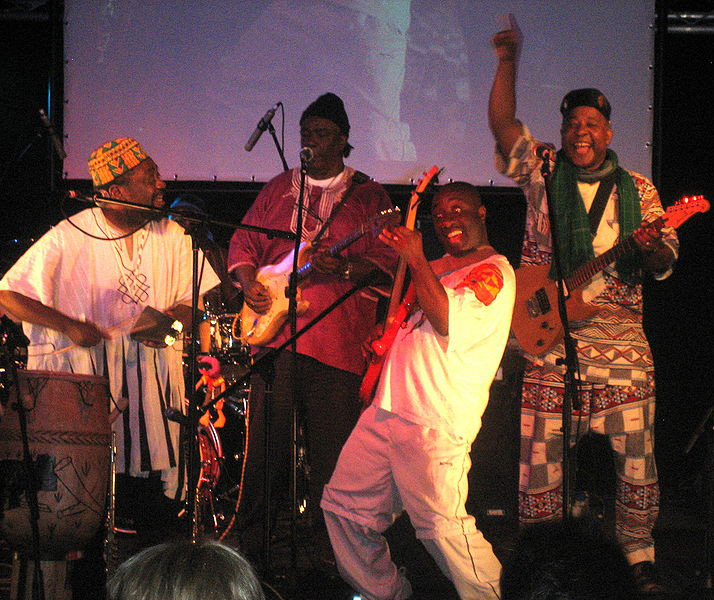During the 1950s and early 1960s, as the British economy recovered from World War II, increasing numbers of people from the Caribbean came to work in Britain. At the same time, many West Africans came to Britain to study.
Musicians from both diasporas played with each other in predominantly white bands and in sessions for Melodisc, a recording company that released material appealing to West African and Afro-Caribbean audiences, and soon they began forming groups based on their own common musical features. By the early 1970s Osibisa, which included both West African and West Indian members, had become a mainstream success.
This according to “Melting pot: The making of black British music in the 1950s and 1960s” by Jon Stratton, an essay included in Black popular music in Britain since 1945 (Farnham: Ashgate, 2014, pp. 27–45).
Below, performing in 2014.
[youtube=https://www.youtube.com/watch?v=iKChSgKZRD8]



